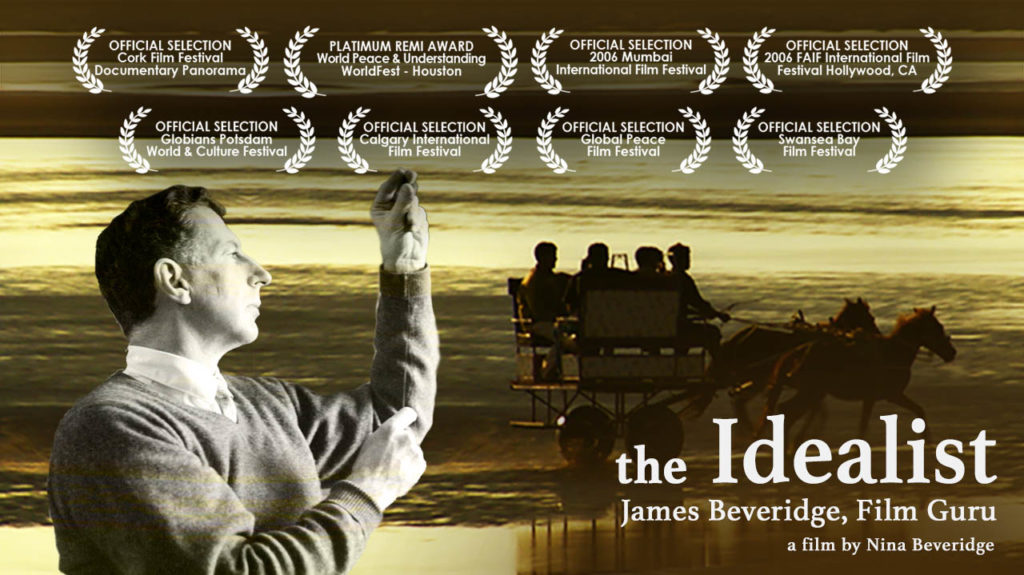I loved my Dad. Everyone did. Humour and language were his greatest gifts, and he shared them liberally with his friends and associates as he frenetically traveled around the globe on his many business pursuits.
Dad moved in and out of our family life. Our exuberant weekend visitor, he was always debonair and entertaining. The family put on their best behaviour for him when he was around. But when he left, our real family life resumed.
In the years after his death, I came to realize that I knew very little about Dad. What did James Beveridge, respected filmmaker, educator, idealist, dream for us, his children? He was an absentee father but he loved us. He was deeply committed to his work and his art. As our lives advanced, Dad’s frantic travels gradually took their toll on his wife and children. What he created was a legacy of idealism — but at what cost? Was the collateral damage worth the determined pursuit of his dreams?
In order to learn more, I decided to go back to India the place of my birth and my parent’s re-birth. India is where the film rightfully begins, and ends. My travels took me through Delhi and Mumbai to New York and North Carolina, Toronto, Montreal and Ottawa, where Dad was a founding member of the National Film Board of Canada. A true Grierson disciple, he spread the word around the world that documentary films could be used as a tool for social change. This was his mission.
Telling one’s family history is like peeling the layers of an onion. I know that I failed to peel one layer in this film. Three years ago, when I told my two brothers that I was going to make a film about our Dad, they were pleased for me. Shortly after, my oldest brother Alex, my dear friend, died of a drug overdose. I believe that it was partly connected to this film, and to the enormous responsibility one feels of ‘measuring up’ to one’s family legacy. I could not cope with marrying the stories of my father and my brother together. How could I compare the driven, perfectionist life of my father with the life of my brother, who gave up? My Dad was successful, but there was a down side – the impact on our family was significant. Yet both my parents projected that we were living an ideal life. I think the burden of living up to those unreal values was too much for my brother.
When asking one broadcaster to support my POV film about my father, he responded “Nina, psychotherapy works just as well and it’s a LOT cheaper!” I can definitely subscribe to the second part of his statement, but it would be hard to top the emotional ride I experienced while making this film. When I reached India the word ‘resonance’ kept occurring to me. This was a living, breathing, culture that resonated for my parents. A place with a long, long memory, where history still co-exists with the living. In Canada and the US my interview subjects offered a frustrating lack of intensity or real insight into my father’s personal and professional personas, but in India his mission and his purpose came alive. So did the frustrations of my mother’s life with him. For the first time I learned about what really happened during the course of their relationship. I remember on the last day in India bawling my eyes out after learning from her closest friend (who refused to be interviewed on camera) how Mom suffered the scathing gossip of the Delhi socialites in order to seek a relationship with a man who might be able to bring her the credibility she desperately wanted.
In the end, were my feelings changed about my father? No, but I came to realize how much of him exists in me, and even though I miss him dearly, perhaps I have a come a little bit closer to understanding the patterns in my own life.
Top photo credit: Bongo Kolycius - Low tide in Alibag, Maharastra, India.

